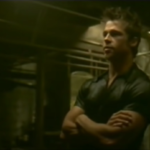Introduction: Michael Kang’s “The Motel” is an insightful independent film that paints a coming-of-age story set against the backdrop of a run-down hourly-rate motel. It’s a tale that explores the themes of adolescence, dysfunctional family dynamics, and the quest for personal identity through the eyes of a young Asian-American protagonist, Ernest Chin (Jeffrey Chyau).
Unpacking the Journey of Adolescence in “The Motel”
The Challenges of Coming-of-Age: “The Motel” presents the universal struggles of growing up, encapsulated in the unique experience of its 13-year-old lead. We follow Ernest’s journey through awkwardness, the complexities of family, and his interactions with the motel’s inhabitants, which become defining moments in his path to self-discovery.
The Characters: The Beating Heart of “The Motel”
Depth and Diversity in Casting: Jeffrey Chyau delivers a heartfelt and relatable performance as Ernest, bringing authenticity to his character’s emotional and sometimes humorous exploration of youth. Sung Kang as Sam Kim, the motel’s charismatic but flawed adult guest, offers a layered portrayal that serves as a dubious role model for Ernest.
Direction with Authenticity and Heart
Michael Kang’s Directorial Craft: Michael Kang’s direction in “The Motel” is notable for its genuine portrayal of a slice-of-life narrative that avoids clichés and provides an authentic look into the Asian-American experience, a perspective not often represented in mainstream cinema.
The Nuanced Exploration of Culture and Identity
A Story That Bridges Cultures: “The Motel” tackles the often-neglected stories of Asian-American experiences, focusing on themes of identity and the cultural crossroads faced by second-generation immigrants. It’s a film that resonates beyond its setting, giving voice to the nuances of a bicultural existence.
The Art of Storytelling Through “The Motel”
Visuals That Complement the Narrative: The film’s visual style is unembellished and gritty, much like the environment of the motel itself, offering a raw and unfiltered look at Ernest’s world. The cinematography captures the essence of the characters’ environment, reflecting the emotional landscape of the narrative.
“The Motel” as a Mirror to Society
Inclusive Storytelling Reflecting Real Lives: “The Motel” succeeds in bringing to light the stories of those who live in the margins, offering an inclusive portrayal of characters who are often marginalized in film. It highlights the diversity of experiences within the Asian-American community and speaks to the shared experience of searching for belonging.
Conclusion: The Enduring Impact of “The Motel”
Score: 4 out of 5 Stars With its honest storytelling, strong performances, and a directorial vision that captures the essence of adolescence with nuance and empathy, “The Motel” earns a solid 4 out of 5 stars.
Final Reflections: “The Motel” is a subtle yet powerful film that leaves a lasting impression. Its strength lies in its ability to tell a specific story that still resonates on a universal level, dealing with themes of identity, family, and the pains of growing up that are relatable to all. For those seeking a film that offers both representation and a touching narrative, “The Motel” is a poignant and charming choice that will not disappoint.
Trailer:






